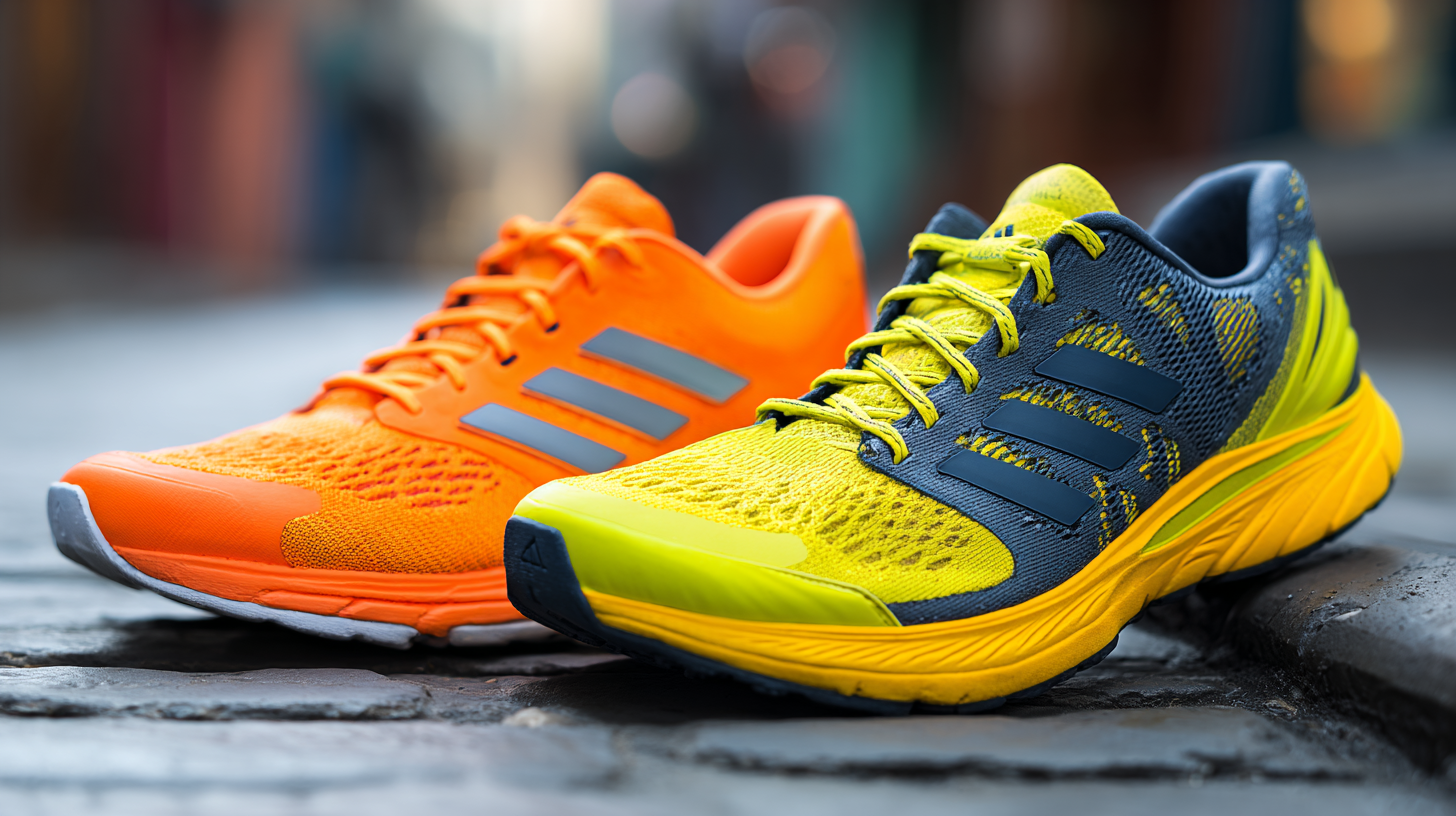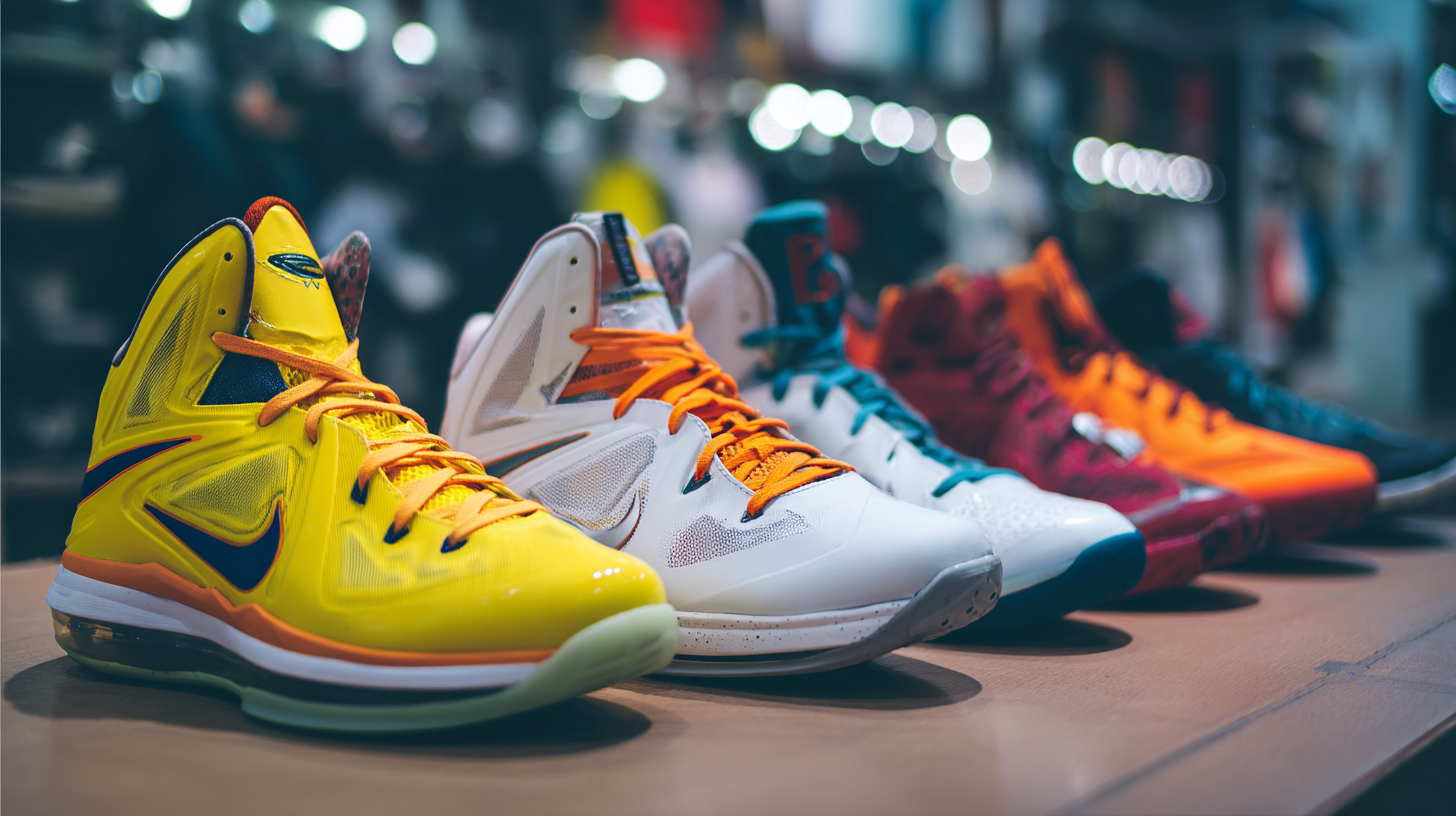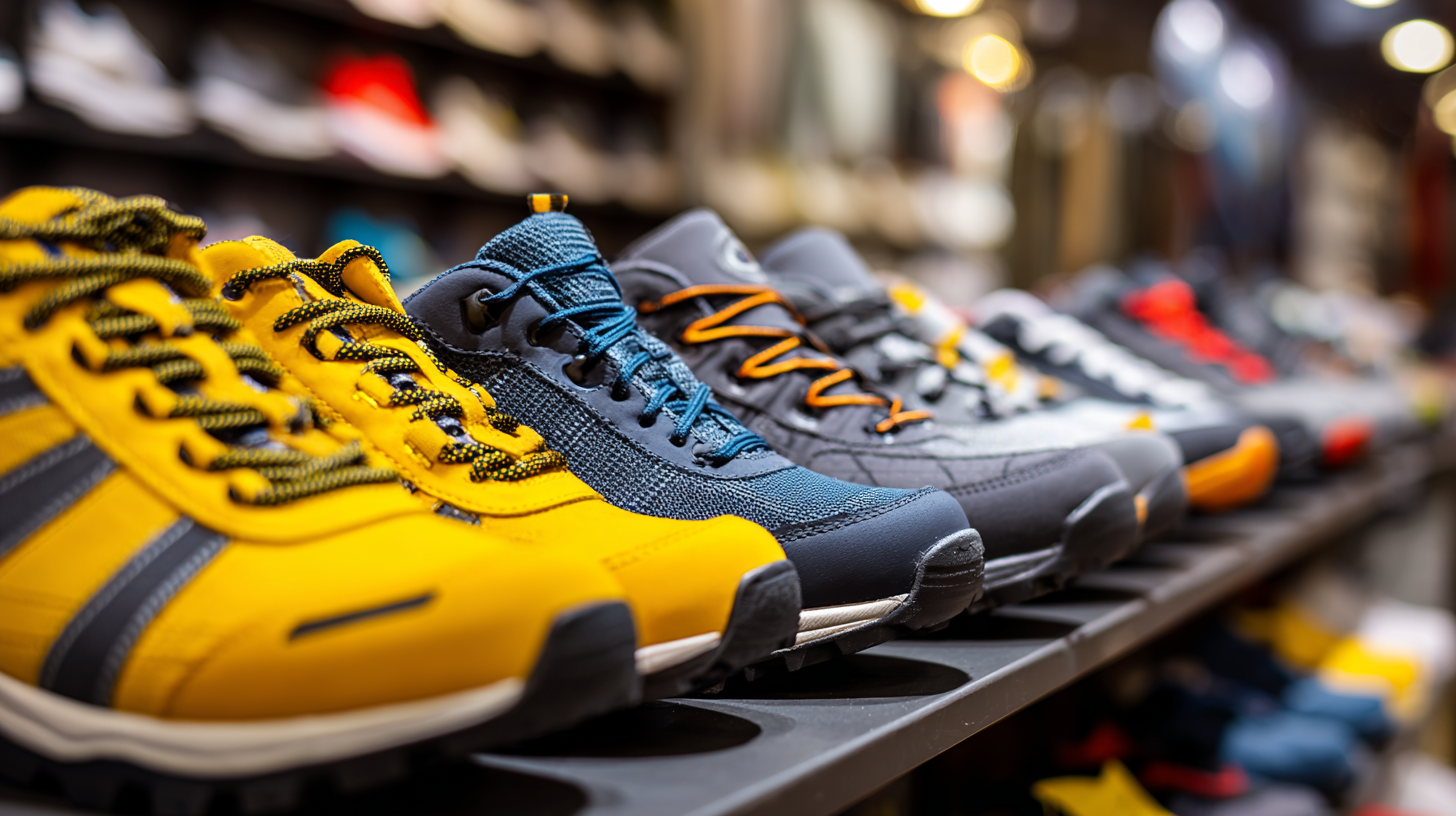
In today's competitive landscape, selecting the right Sports Shoes Supplier is crucial for business success, particularly as the global athletic footwear market is projected to reach approximately $102.5 billion by 2025, according to recent industry analyses. The increasing awareness of health and fitness, coupled with the rise in sports participation, drives a significant demand for high-quality sports footwear. Moreover, the emergence of e-commerce and innovative retail strategies are reshaping how businesses engage with suppliers and consumers alike.

Effective partnerships with reputable suppliers not only ensure access to the latest technologies and trends but also enhance brand reputation and customer loyalty. By understanding the key factors that influence the success of your business in this dynamic market, stakeholders can make informed decisions that align with their long-term goals and increase profitability.
When it comes to athletic performance, the quality of sport shoes cannot be overstated. Well-designed shoes provide essential support, enhance stability, and improve overall comfort during physical activities. Athletes who invest in high-quality footwear often experience better performance and reduced fatigue, allowing them to focus on their training and competition without the distraction of discomfort. Moreover, a shoe that fits properly can lead to improved biomechanics, ultimately increasing efficiency in movement.
Tips for choosing the right sports shoes include understanding your foot type and gait, which helps in selecting a shoe that offers the right level of support for your activities. Additionally, consider opting for shoes with adequate cushioning and breathability to prevent injuries and promote better endurance. Regularly replacing worn-out shoes is also crucial; worn footwear can lead to imbalances and increase the risk of sprains or strains, thereby hampering athletic performance.
Investing in a reputable sports shoes supplier can further ensure that athletes receive high-quality products tailored to their specific needs. Look for suppliers that prioritize innovative technologies and materials, as these advancements can significantly contribute to injury prevention and successful athletic outcomes.
| Reason | Impact on Performance | Injury Prevention | Durability | Comfort Level |
|---|---|---|---|---|
| High-Quality Materials | Enhanced energy return | Reduces risk of blisters and abrasions | Lasts longer under high use | Provides all-day comfort |
| Innovative Design | Improves speed and agility | Offers better support | Resistant to wear and tear | Adjusts to foot shape |
| Expert Recommendations | Tailored to specific sports | Minimizes joint stress | Sustains performance over time | Enhances overall fit |
| Technology Integration | Smart cushioning systems | Impact absorption | Long-lasting performance | Ergonomic adjustments |
| Brand Reputation | Trusted by professional athletes | Backed by science and research | Consistent product quality | Positive user reviews |
| Customizable Options | Personalized fit for enhanced performance | Potential for fitness-specific designs | Extended lifespan through adjustments | Increased satisfaction from fit |
| Comprehensive Support | Professional guidance | Physical therapy recommendations | Long-term investment in athlete health | Responsive customer service |
The demand for high-quality sports footwear in 2023 is driven by an increasingly health-conscious population and a growing emphasis on athletic performance. The global luxury footwear market is projected to reach approximately $34.58 billion in 2023, with a compound annual growth rate (CAGR) of 7.26% from 2024 to 2031. This surge indicates not only a thriving consumer interest but also an evolving market landscape that prioritizes premium materials and innovative designs. Brands that adapt to these market trends are likely to capture a larger share of this lucrative segment.
As brands reposition themselves to connect with consumers, the significance of quality and performance in sports shoes has never been more pronounced. Companies that focus on building robust supply chains and collaborating with top-tier suppliers can tap into growing consumer preferences for durability and style. The rising trend in sports and fitness activities ensures that the demand for advanced athletic footwear will continue to grow, making it crucial for businesses to align with reliable suppliers who understand the dynamic needs of the market.
When evaluating sports shoes suppliers, it's crucial to examine their certifications to ensure they maintain top-notch manufacturing standards. Certifications serve as a benchmark for quality assurance, demonstrating that a supplier adheres to industry-specific standards, which can range from safety protocols to environmental sustainability.
By partnering with certified suppliers, businesses not only mitigate risks associated with product quality and safety but also enhance their reputation in the market. Clients and consumers are increasingly drawn to companies that prioritize ethical sourcing and sustainable practices, making these certifications an essential aspect of a supplier’s credibility.
In today's competitive landscape, due diligence in assessing potential suppliers has never been more critical. Companies must scrutinize the sustainability audits and compliance records of suppliers to ensure they meet rigorous environmental and social standards. This scrutiny not only helps in building a transparent supply chain but also strengthens the overall business model, fostering growth and resilience against market fluctuations.
Investing in suppliers that prioritize excellence through certifications and sustainable practices ultimately contributes to a robust foundation for long-term business success.
When it comes to running a successful retail business in the sports footwear market, cost efficiency plays a pivotal role. According to a report by Grand View Research, the global athletic footwear market is expected to reach $95.14 billion by 2025, highlighting the growing demand for high-quality sports shoes. This emphasizes the importance of strategic sourcing when choosing a supplier. By selecting a supplier that offers competitive pricing without sacrificing quality, businesses can significantly impact their bottom line.

Strategic sourcing not only reduces procurement costs but also enhances supply chain management. A study by the Aberdeen Group found that companies with a strategic sourcing approach experience a 30% lower cost of goods sold. This cost reduction allows businesses to allocate resources more effectively, ultimately improving profitability. Furthermore, fostering strong relationships with the best sports shoes suppliers can lead to better negotiation power and terms, ensuring businesses maintain their market competitiveness while maximizing their operational efficiency. In an increasingly competitive landscape, leveraging cost efficiency through strategic sourcing becomes imperative for long-term success.
The footwear industry is experiencing a seismic shift toward sustainable production practices, driven by both consumer preferences and environmental concerns. According to a recent report by Grand View Research, the global sustainable footwear market is expected to reach $9.81 billion by 2025, reflecting a compound annual growth rate (CAGR) of 8.8%. More consumers are prioritizing eco-friendly options, with a survey revealing that 66% of global consumers are willing to pay more for sustainable products. As a business, aligning with these trends by sourcing from the best sports shoes suppliers who prioritize sustainability can provide a competitive edge.

When selecting a supplier, consider their commitment to ethical manufacturing processes. Choose suppliers who utilize recycled materials or biodegradable components in their products. Additionally, look for companies that have transparent supply chains, ensuring that their practices adhere to environmental regulations and labor laws. This not only enhances your brand image but also attracts target customers who value sustainability.
Furthermore, leveraging social media to highlight your commitment to sustainable footwear can significantly boost your brand presence. Engage with consumers by showcasing your eco-friendly practices and the story behind your sourcing choices. Building a community around sustainable values not only enhances consumer loyalty but also positions your business as a pioneer in sustainable practices in the sports footwear sector.
